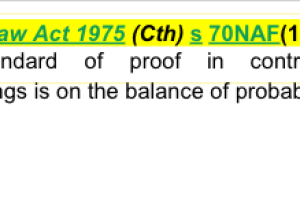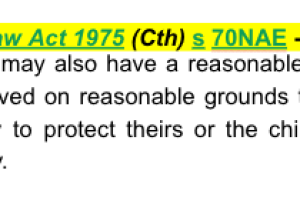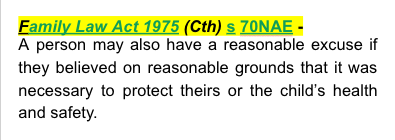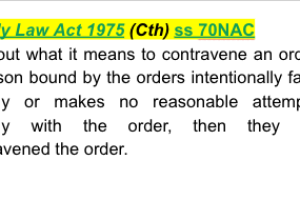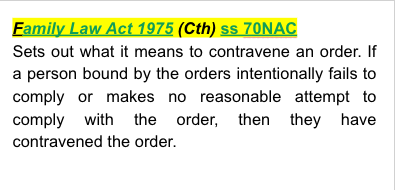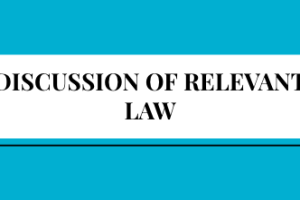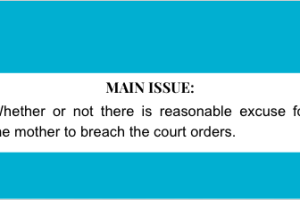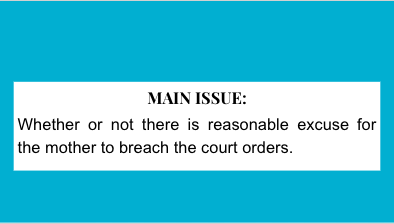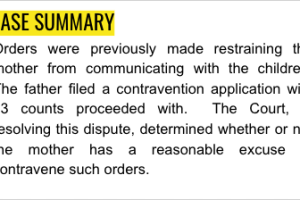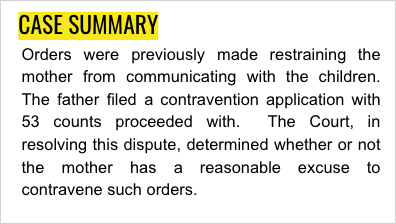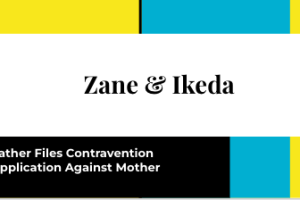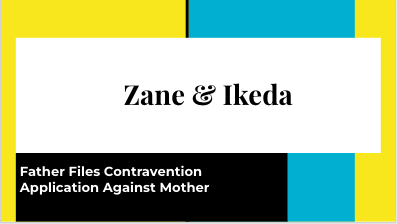- · 4849 friends
Father Files Contravention Application Against Mother

Zane & Ikeda [2022] FedCFamC2F 867 (4 July 2022)

Orders were previously made restraining the mother from communicating with the children. The father filed a contravention application with 53 counts proceeded. The Court, in resolving this dispute, determined whether or not the mother has a reasonable excuse to contravene such orders.

Facts:
The father initiated parenting proceedings in 2018. Interim orders made on 21 May 2019 provided for a change of residence to the father’s sole care. Whilst judgment was reserved the parties entered into a consent agreement and final parenting orders were made on 26 November 2020. Those orders are prescriptive. The alleged contraventions are all with respect to either orders 7, 9, 10 or 14 of the final orders made 26 November 2020.
When cross-examined, the mother agreed that part of the reason for the interim orders placing the children in the father’s care and restraining the mother from having any contact, was because the mother would communicate with the children without the father’s knowledge and give them instructions undermining the father’s parenting.
Some of these counts outline multiple texts on the same day. Sensibly, the father did not seek to pursue those as individual counts. The father’s counsel handed up an aide memoire which summarised the subpoenaed telephone records. The mother had been given an opportunity to inspect the subpoenaed record and check the aide memoire for its accuracy.
The father pursues his contravention application, amended on 3 August 2021 with respect to parenting orders for Z and X. Z was born in 2007 and is 15 years old. X was born in 2010 and is 11 years old. Pursuant to Notation A of the Interim Orders made on 12 August 2021, the Applicant did not proceed with each and every count. The father filed a case outline on 28 March 2022 indicating that he would proceed with 53 of the 128 counts.
The contraventions the father pursued at hearing fall into 5 broad categories as follows: (1) The mother text messaging X without the father’s written consent; (2) The mother text messaging Z without the father’s written consent; (3) The mother failing to immediately inform the father about contact she received from the children and responding to the children’s messages; (4) The mother engaging Ms. B as her agent to contact the girls’ school on her behalf; (5) The mother engaging Mr. C as her agent to contact the girls on her behalf on 11 occasions. The mother acknowledged that she understood the final orders made on 26 November 2020. She was legally represented at the time. The mother says she has a reasonable excuse for the alleged contraventions.

Issue:
Whether or not there is reasonable excuse for the mother to breach the court orders.

Applicable law:
Family Law Act 1975 (Cth) ss 70NAC - sets out what it means to contravene an order. If a person bound by the orders intentionally fails to comply or makes no reasonable attempt to comply with the order, then they have contravened the order.

Family Law Act 1975 (Cth) s 70NAE - provides that a person may also have a reasonable excuse if they believed on reasonable grounds that it was necessary to protect theirs or the child’s health and safety.

Family Law Act 1975 (Cth) s 70NAF(1) - provides that the standard of proof in contravention proceedings is on the balance of probabilities.

Family Law Act 1975 (Cth) s 70NBA - empowers the Court to vary the primary parenting order irrespective of whether or not the court finds a person contravened the primary orders. However in this matter the issues are complex.
Analysis:
It was clear from the mother’s submissions and cross-examination of the father that at one point the father was allowing her to have various interactions with the girls over a period of months. The mother complained that the father chose isolated incidents to pursue as contraventions.
This vastly oversimplifies the father’s application. The contraventions he focusses on involve precisely the type of behaviour that was a risk to the children’s emotional and psychological welfare. That risk stems from the mother’s unilateral and intrusive communication with the girls, undermining the father’s parenting.
The first breach occurred on the very day the orders were made on 26 November 2020, which was X’s birthday. When cross-examined, the mother agreed that she knew she needed written permission from the father to communicate with the children and that oral permission was not enough. The mother claimed that there was one email where the father gave permission and she would try and find it. No email or text message was produced by the mother.
The records show the mother making numerous contacts in one day at various times of day from early in the morning to late at night. When asked when she alleges the father first allowed her to have the children unsupervised, the mother said it was when they discussed X going horse riding.
She said that Z was there and did not want to go if the father was going. She referred to the date being on the photos that she annexed to her affidavit and refers to the horse riding activity being for X’s birthday. The mother was called to produce an email which she claimed to exist with respect to the father allowing her to communicate with the girls directly. The mother was unable to produce the email, but did submit emails with respect to the horse riding.
Not only did the father never say to the mother that she could contact either of the girls by text or telephone, the mother engaged in multiple communications without the father’s knowledge.
Conclusion:
The Court found that counts 2, 8, 10, 12, 14, 16, 18, 20, 24, 26, 27, 28, 29, 30, 32, 34, 38, 40, 42, 44, 48, 52, 54, 56, 58, 60, 64, 66, 73, 79, 80, 84, 94, 97, 99, 100, 102, 104, 111, and 128 are proved. The Court is satisfied that the mother breached those orders without reasonable excuse. The Court dismissed counts 1, 68, 77, 78, 83, 93, 96, 101, 110, 114, 115, 120 and 125.


